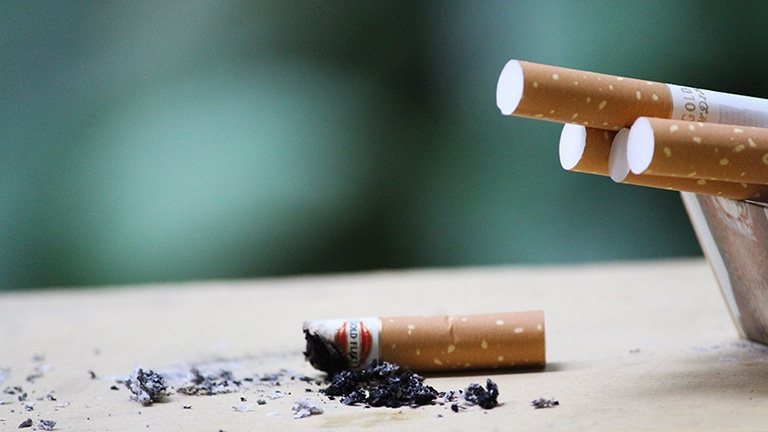
Smokers are at a significantly higher risk of post-surgical complications, a new study has found.

People who smoke cigarettes are at a significantly higher risk of post-surgical complications including heart and lung injuries, infections and delayed or impaired wound healing, a new study has found.
Led by the University of Newcastle, the World Health Organisation (WHO), and the World Federation of Societies of Anaesthesiologists (WFSA), the findings in the WHO Tobacco Knowledge Summary on Tobacco Postsurgical Outcomes provide good incentive for smokers to quit – quitting approximately four weeks before surgery lowers risk of complication and yields better results six months post-operation.
For each additional week smoking was quit before surgery, a patient showed a 19% improved outcome after surgery.
Director of Health Programs, Global Engagement and Partnerships at the University of Newcastle, Associate Professor Edouard Tursan D’Espaignet, said this is attributed to improved blood flow throughout the body to essential organs.
“The healing process after surgery requires the body to use increased amounts of oxygen and nutrients. Smoking just one cigarette can reduce the body’s blood flow and ability to deliver necessary nutrients for this healing. Second-hand smoke and smokeless tobacco can also cause adverse outcomes after surgery,” Associate Professor Tursan D’Espaignet said.
The Tobacco Knowledge Summary on Tobacco and Postsurgical Outcomes also reports that decreased oxygen levels, caused by chemicals in tobacco, greatly increases the risk of heart related complications after surgery.
Associate Professor Luke Wolfenden of the University of Newcastle’s Priority Research Centre for Health Behaviour, and a member of the Hunter Medical Research Institute’s Public Health Program, said damage to lungs from smoking increased the risk of post-surgical complications in the lungs.
“Smoking also distorts a patient’s immune system and the body’s response to wounds. A smoker’s body may take longer to heal a wound which can increase risk of infection at the wound site.
“Overall, a patient’s heart, lungs, and wound site are all at a greater risk when they smoke cigarettes,” Associate Professor Wolfenden said.
Associate Professor Tursan D’Espaignet said complications after surgery present a large burden for both the health care provider and the patient.
“Some of these complications are preventable, or the risk can be minimised, if patients are effectively supported to quit smoking prior to surgery.
“Surgeons anaesthesiologists, nurses, and health practitioners involved in non-emergency surgery should be working together to encourage the patient to try and give up tobacco use before any surgery. This would help reduce hospital readmission rates by minimising the risk of complications and infections in patients with a history of smoking.”
“Smoking cessation programs need to be fully supported by national health policies and programmes, health insurance companies, hospitals, doctors and nurses,” Associate Professor Tursan D’Espaignet said.
The University of Newcastle’s Priority Research Centre for Health Behaviour, which is a designated WHO Collaborating Centre, demonstrated a leading research effort in the project.
The University’s Senior Deputy Vice-Chancellor and Vice-President, Global Engagement and Partnerships, Professor Kevin Hall, said it is was honour to partner with WHO to help drive their global efforts fighting non-communicable diseases.
“We are proud that our researchers are contributing to this global reaching work and helping to bring about improved health outcomes across the world.
“We greatly value our partnerships with organisations such as WHO and CIFAL Global Network as it helps us to share local research of global importance,” Professor Hall said.